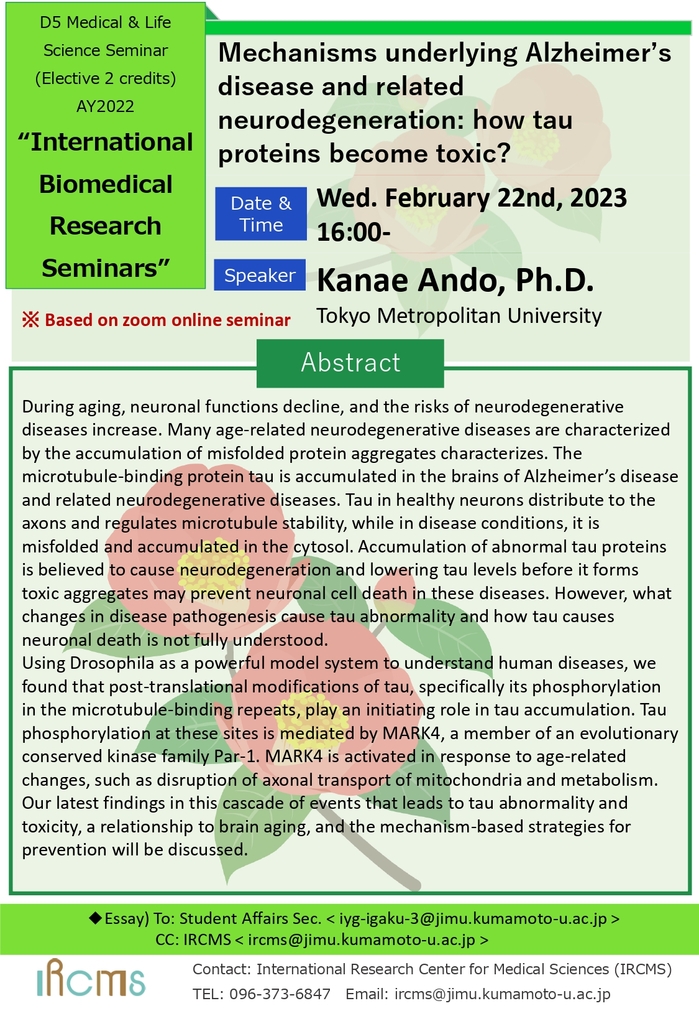Events
[Feb. 22] D5 Seminar-Dr. Kanae Ando (Tokyo Metropolitan University)
February 3 2023
The "D5 Medical & Life Science Seminar" course will be offered by International Research Center for Medical Sciences (IRCMS). It will run from May 2022 to March 2023, with lectures given by scientists who are affiliated with IRCMS or in collaboration with researchers at IRCMS. The lectures will be given once a month, in English, and by leading scientists in the relevant research field. Students will be taught: 1) how normal physiological functions are maintained in the human body; 2) how these systems become abnormal under certain pathophysiologic conditions; 3) why stem cells are important in animal development and homeostasis; 4) how stem cell-based approaches can help us understand disease mechanisms and find potential cure for diseases related to stem cell malfunction (e.g., cancer, aging).
Anyone who wants to join is welcome.
For students who have registered for the course, please check your attendance in Moodle.
Date : February 22, 2023 (Wednesday)
Venue: Onsite & Online
IRCMS Lounge, IRCMS Building & Zoom
Time : 16:00 -
Speaker : Dr. Kanae Ando
Associate Professor,
Department of Biological Sciences, Graduate School of Science, Tokyo Metropolitan University
Title : Mechanisms underlying Alzheimer's disease and related neurodegeneration: how tau proteins become toxic?
Abstract :
During aging, neuronal functions decline, and the risks of neurodegenerative diseases increase. Many age-related neurodegenerative diseases are characterized by the accumulation of misfolded protein aggregates characterizes. The microtubule-binding protein tau is accumulated in the brains of Alzheimer's disease and related neurodegenerative diseases. Tau in healthy neurons distribute to the axons and regulates microtubule stability, while in disease conditions, it is misfolded and accumulated in the cytosol. Accumulation of abnormal tau proteins is believed to cause neurodegeneration and lowering tau levels before it forms toxic aggregates may prevent neuronal cell death in these diseases. However, what changes in disease pathogenesis cause tau abnormality and how tau causes neuronal death is not fully understood.
Using Drosophila as a powerful model system to understand human diseases, we found that post-translational modifications of tau, specifically its phosphorylation in the microtubule-binding repeats, play an initiating role in tau accumulation. Tau phosphorylation at these sites is mediated by MARK4, a member of an evolutionary conserved kinase family Par-1. MARK4 is activated in response to age-related changes, such as disruption of axonal transport of mitochondria and metabolism. Our latest findings in this cascade of events that leads to tau abnormality and toxicity, a relationship to brain aging, and the mechanism-based strategies for prevention will be discussed.
Flyer: (Click to enlarge)

